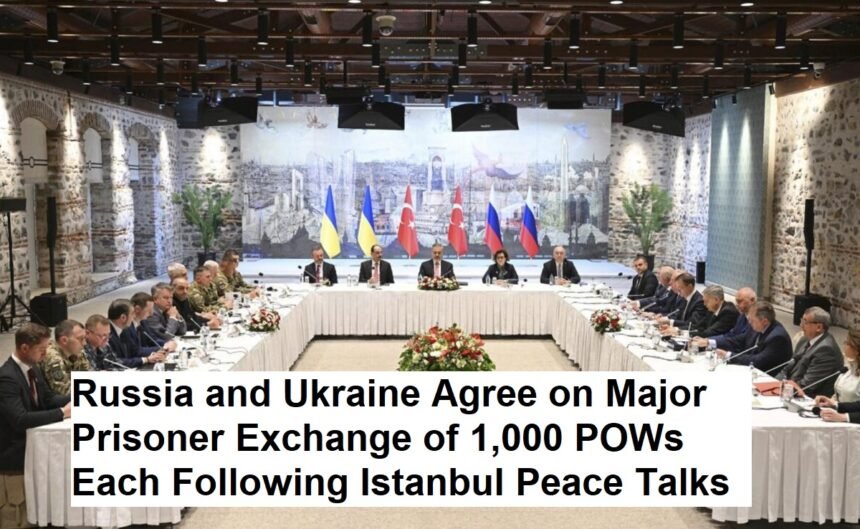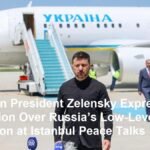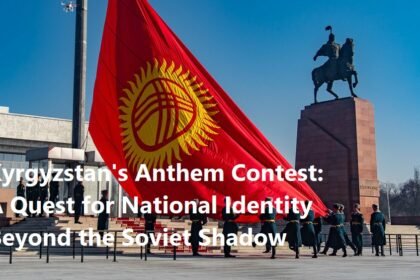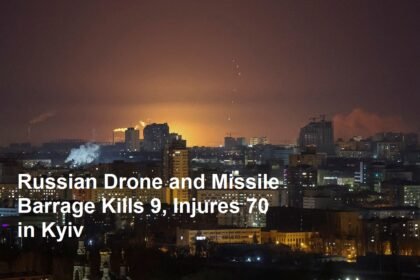In a significant development amid the ongoing conflict, Russia and Ukraine have agreed to conduct a large-scale prisoner exchange involving 1,000 detainees from each side. This agreement was reached during peace talks held in Istanbul, Turkey, on Friday, May 16, 2025. The prisoner swap marks the most substantial exchange since the full-scale invasion of Ukraine by Russia in February 2022 and represents a rare moment of cooperation between the two adversaries.
The talks in Istanbul were the first direct face-to-face negotiations between the Russian and Ukrainian delegations since the early stages of the war. Despite lasting less than two hours and failing to produce a ceasefire agreement, the meeting yielded this important breakthrough on prisoner exchanges. Both sides expressed hope that the swap would proceed in the coming days, with preparations already underway.
Ukraine’s delegation was led by Defence Minister Rustem Umerov, who confirmed the agreement to the media. Ukrainian officials, including Kyrylo Budanov, head of Ukraine’s Military Intelligence, expressed optimism that the exchange could take place as soon as the following week, emphasizing the absence of major obstacles at this stage. The Russian side also acknowledged the agreement but remained silent on other contentious issues discussed during the talks.
The prisoner exchange is seen as a humanitarian gesture amid the brutal and protracted conflict that has caused immense suffering on both sides. Thousands of soldiers and civilians have been detained or captured since the war began, and the release of prisoners is a critical step toward alleviating some of the human costs of the conflict. Families on both sides have awaited news of their loved ones, and this agreement brings a glimmer of hope.
However, the talks also highlighted the deep divisions that remain between Russia and Ukraine. Russian negotiators reportedly demanded that Ukraine withdraw its troops from all regions claimed by Moscow before agreeing to a ceasefire, a condition that Ukraine has rejected. As a result, no ceasefire or broader peace agreement was reached during this session.
The involvement of international actors, including the United States, has been instrumental in facilitating the resumption of dialogue. The U.S. played a constructive role in encouraging Ukraine to return to the negotiation table and supported the Istanbul format for talks. The prisoner exchange agreement is viewed as a positive outcome of these diplomatic efforts, even as the broader conflict continues.
The Istanbul talks and the prisoner swap agreement underscore the complexity of the Russia-Ukraine war, where moments of negotiation coexist with ongoing hostilities. While the exchange does not signal an immediate end to the fighting, it opens a channel for further dialogue and confidence-building measures that could pave the way for future negotiations.
In conclusion, the agreement between Russia and Ukraine to exchange 1,000 prisoners from each side following peace talks in Istanbul represents a significant humanitarian milestone in a conflict marked by violence and stalemate. Although challenges remain in achieving a ceasefire or lasting peace, this prisoner swap offers a rare example of cooperation and a potential foundation for further diplomatic progress. The international community continues to watch closely, hoping that such steps will eventually lead to a resolution of the war and relief for those affected.









